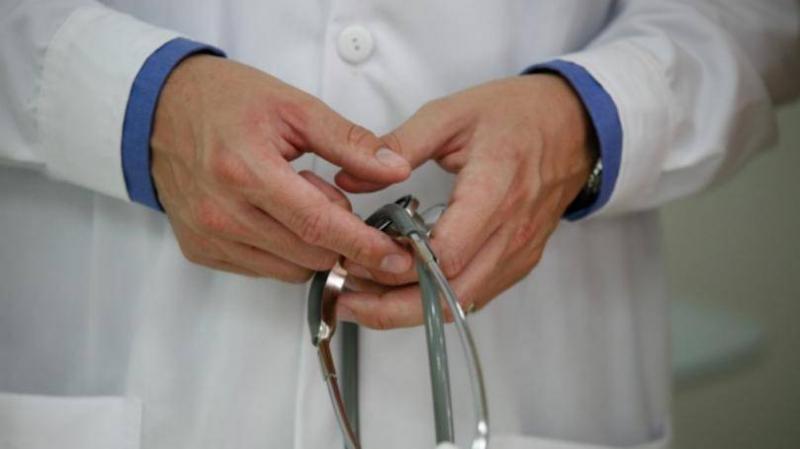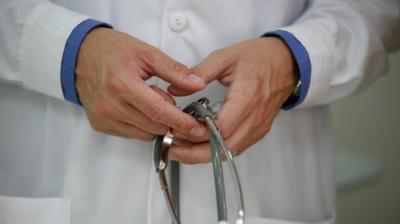Dr. Youssef Bakhach, the President of the Medical Association, held a press conference at the House of the Physician, attended by members of the association council, representatives from medical committees in hospitals, and officials from Lebanese scientific associations. During the conference, he explained "the challenges and problems facing the medical community." Bakhach raised a warning cry, stating: "We meet today at the House of the Physician to voice a cry of pain expressed by every doctor across the land of a nation that was once called the hospital of the East. The physician is part of the fabric of national society, carrying a noble humanitarian message aimed at helping the patient, in adherence to the Hippocratic Oath. However, this does not mean that the physician should be the weak link in the economic and social chain or be treated as a scapegoat. The physician must not live in a state of financial anxiety and instability, forcing them to despair of their country and its people, compelling them to pack their bag and emigrate, contributing their expertise to Western and Arab medical communities. This nation, more than ever, needs the expertise of specialized physicians amidst the loss of essential medicines, basic medical materials, an increase in healthcare costs for every citizen, and the decline in purchasing power for both patients and doctors alike."
He added: "It is necessary to present some truths today as journalists who convey the truth to public opinion, which, if aware, would be the first to rush to defend the physician. Besides the humiliation that we are subjected to, like all Lebanese at the banks where we plead for our legitimate and rightful entitlements, there is injustice against every doctor and every worker in the healthcare sector. The reality is that what pushes doctors to emigrate is primarily financial issues. The value of medical symbols that determine the physician's fees set by official or private funding agencies has not been adjusted since 2019, neglecting the existing inflation, rising living costs, and the general depreciation of purchasing power and dollarization of the national economy. Furthermore, it is still calculated based on the official dollar exchange rate of 1507 lira. Additionally, the delays in fulfilling these payments (the last payment was in June 2021 for some hospitals) mean that had they been paid on time, they would have at least maintained some value. Moreover, while remittances may arrive timely, banks refuse to liquidate them for illegal and illogical reasons. Even when some banks do allow liquidation, it is at commissions and deductions ranging from 30% to 40%, all at the doctor's expense. Regardless, banks impose a maximum withdrawal limit of no more than six million lira per month, which often falls below minimum limits."
He continued: "This continues to tie the physician's fees to the financial rights of healthcare institutions, and they have not been separated until now. We demand that this be implemented as soon as possible so that the physician alone does not bear the consequences of the collapse of the healthcare sector in Lebanon. The collapse is not their responsibility—rather, it is the responsibility of a corrupt state that has ravaged all vital sectors. Moreover, retired physicians suffer as well, having devoted their lives to serving the nation and patient alike; their hard-earned funds are also locked in banks, and their pensions sometimes amount to no more than three million lira, barely sufficient for any citizen for a week or less if they restrict themselves to the bare necessities."
He added: "In this context, we must extend our gratitude to the Speaker of the House, Mr. Nabih Berri, and the Ministers of Health and Finance in the caretaker government, Doctors Firas Al-Abiad and Youssef Khalil, for their assistance in saving the retirement fund from collapse and bankruptcy through the approval of collecting dues for the association from pharmaceutical companies based on the drug index price."
He concluded: "Finally, we raise this warning cry and confirm to the officials, concerned parties, and those who take the physician and their sacrifices lightly that our options are now open from this moment onward for the benefit of both the physician and the patient alike. Thank you for your presence and for joining us in raising this cry, which is a cry of pain and a cry for rights."




